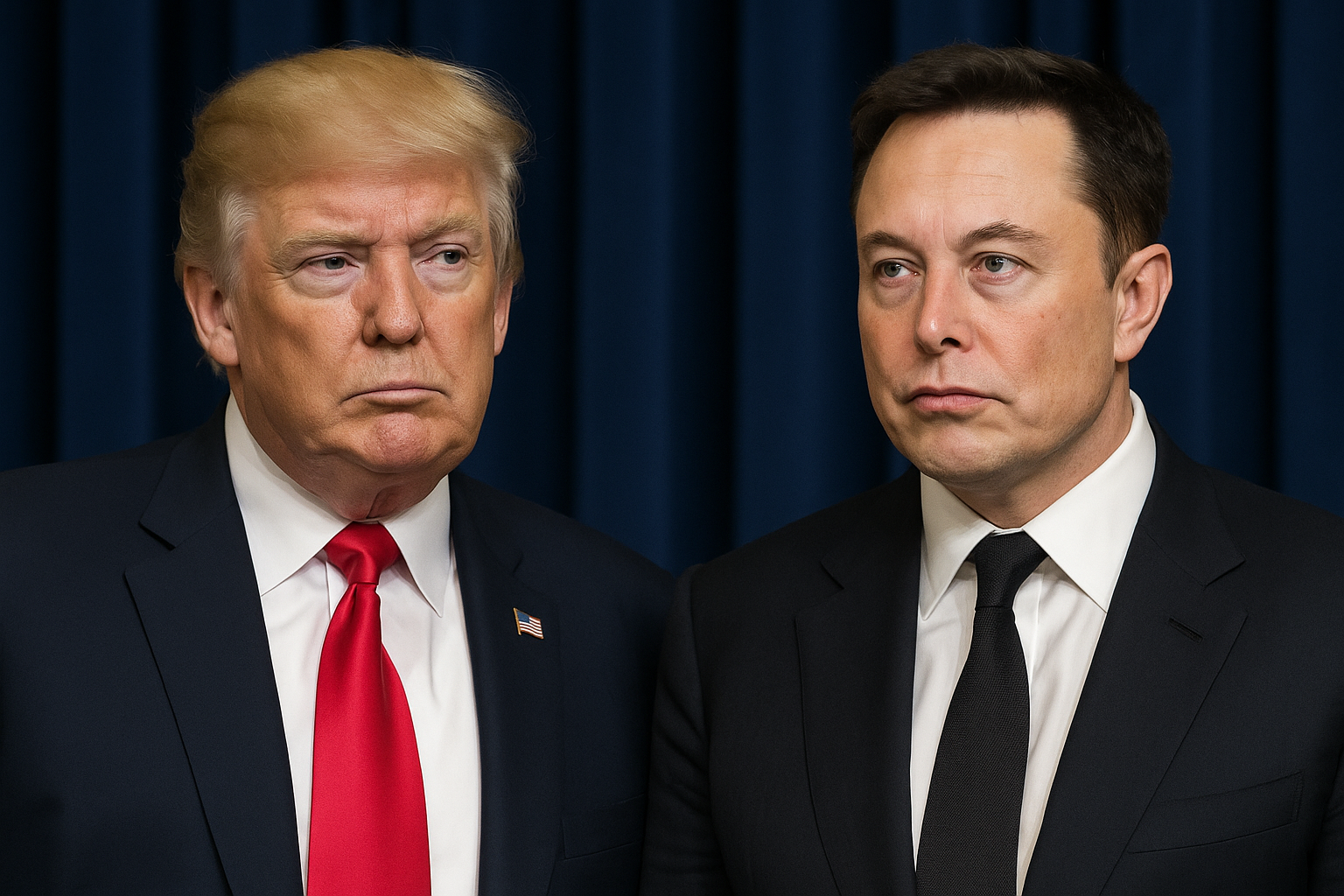
In a surprising yet revealing turn of events, billionaire entrepreneur Elon Musk has voiced sharp criticism of President Donald Trump's marquee spending bill, calling it a "massive spending bill" that runs contrary to the promises of fiscal prudence and government efficiency made during the election campaign in 2024.
Musk, the high-profile CEO of Tesla and SpaceX, who once served as a senior adviser in the Trump administration and donated a reported $250 million to support Trump’s candidacy, appears to be distancing himself from the political inner circle he once championed. In a candid interview with CBS, Musk described the bill promoted by Trump as his "big beautiful bill” as a fiscal misstep, laden with tax cuts, increased spending, and a heightened deficit.
"I think a bill can be big or it can be beautiful," Musk said in a pointed remark, "but I don't know if it can be both."
The spending legislation, which features a controversial mix of tax cuts and tougher immigration enforcement, has already passed through the House and is now under deliberation in the Senate. It has become a litmus test for GOP unity and Trump’s policy-making clout. But Musk’s disapproval could further fuel internal criticism from fiscal conservatives within the GOP who worry that Trump’s ambitions come at the cost of ballooning the federal deficit.
Musk’s discontent, however, seems to stem from more than just numbers. His criticism appears rooted in a deeper disillusionment with Washington’s bureaucratic inertia. As head of the Department of Government Efficiency (DOGE), Musk had once hoped to save the U.S. government $2 trillion. But the tech mogul now concedes that he’s fallen far short of that goal.
"The federal bureaucracy situation is much worse than I realized," Musk told The Washington Post. “I thought there were problems, but it sure is an uphill battle trying to improve things in D.C., to say the least.”
The rift between Musk and Trump may not be entirely ideological. It also marks a growing frustration among tech leaders with the pace and nature of political reform. For a figure like Musk, known for swift innovation and disruption, the slow grind of policy-making appears to have been a sobering experience.
Amidst his criticism, Musk has indicated a step back from political involvement, saying he will scale down his government engagement and focus more on his private ventures, notably Tesla and SpaceX. He also stated he would reduce his political donations, asserting, “I think I’ve done enough.”
On the other hand, Trump, in remarks to reporters, seemed keen to avoid a direct confrontation. While acknowledging there are aspects of the bill that he is “not happy about,” Trump insisted he was “thrilled by other aspects.” The president emphasized the importance of securing Senate support, hinting at the complex political calculus behind the legislation. “We can’t be cutting, you know, we need to get a lot of support,” Trump said.
While the public fallout between Musk and Trump does not yet signal a total severing of ties, it underscores the uneasy relationship between the private sector's reformist zeal and the entrenched systems of government. It also signals a potential recalibration of Silicon Valley’s political engagements, as executives weigh the costs of aligning too closely with any political ideology, even within the GOP.
For now, Musk’s retreat from government advising and his stinging criticism of Trump’s fiscal policy send a strong message: even the most powerful alliances forged on the campaign trail can falter under the weight of governance.
As the Senate debates the bill, the broader implications of this fracture will likely extend far beyond Capitol Hill. In a nation increasingly shaped by the voices of entrepreneurs and technocrats, Musk’s dissent could inspire further scrutiny of how political promises translate into legislative reality and what that means for the future direction of the GOP.





















